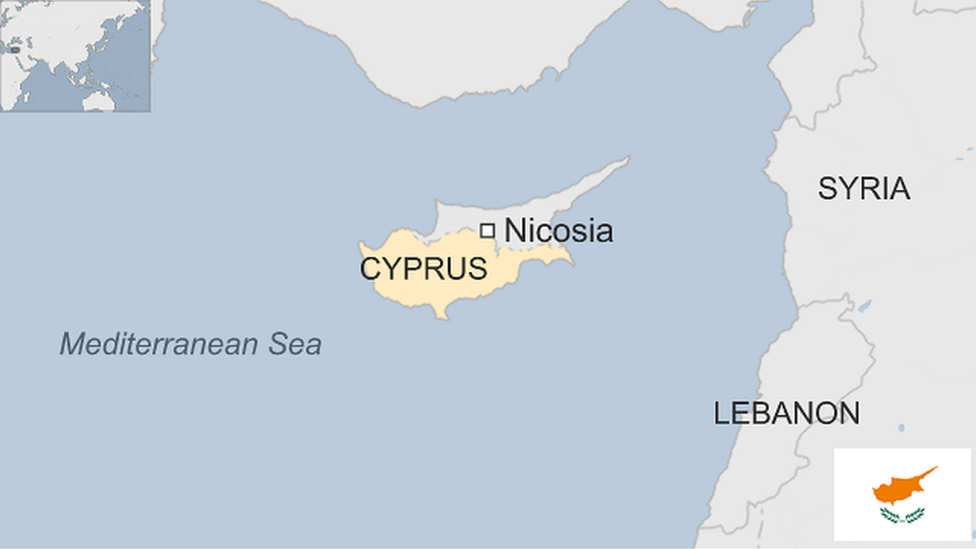Turkey country profile
- Published
This page is no longer being updated. It was last updated on 22 August 2023

Once the centre of the Ottoman Empire, the modern Republic of Turkey was established in 1923 by nationalist leader Mustafa Kemal Ataturk.
Straddling the continents of Europe and Asia, Turkey's strategically important location has given it major influence in the region - and control over the entrance to the Black Sea.
Progress towards democracy and a market economy was halting after Ataturk's death in 1938. The army, seeing itself as guarantor of the constitution, repeatedly ousted governments in the second half of the 20th Century.
Joining the European Union has been a longstanding ambition. Membership talks were launched in 2005, but have stalled over serious misgivings about Turkey's human rights record.
Kurds make up about a fifth of the population. Kurdish separatists who accuse the Turkish state of seeking to destroy their cultural identity have been waging a guerrilla war since the 1980s.
Read more country profiles, external - Profiles by BBC Monitoring, external
REPUBLIC OF TURKIYE/TURKEY: FACTS
Capital: Ankara
Area: 783,356 sq km
Population: 84.7 million
Languages: Turkish, also Kurdish, Arabic, Zaza, Circassian, Laz
Life expectancy: 74 years (men) 80 years (women)
LEADERS
President: Recep Tayyip Erdogan
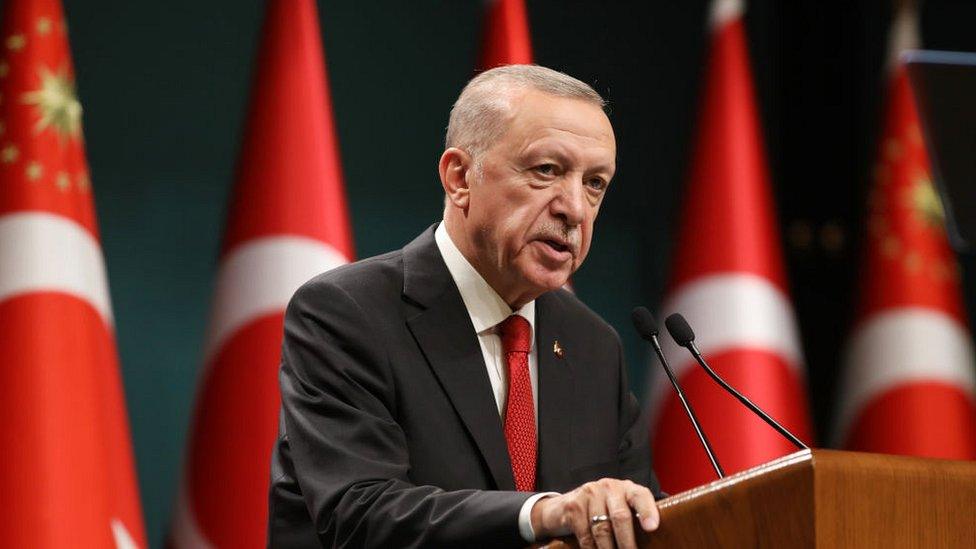
Recep Tayyip Erdogan won a new five-year term as president in elections in May 2023.
He first came to power as prime minister in 2003 following a sweeping electoral victory the previous year by the Islamist-rooted Justice and Development Party (AKP), of which he was a founding member.
He spent 11 years as Turkey's prime minister before becoming the country's first directly-elected president in August 2014 - a supposedly ceremonial role.
To his supporters he has brought Turkey years of economic growth, but to his critics he is an autocratic leader intolerant of dissent who harshly silences anyone who opposes him.
In July 2016, the AKP government survived an attempted coup which saw clashes on the streets of Istanbul and Ankara that left 256 people dead.
The authorities subsequently detained thousands of soldiers, judges, teachers and civil servants on suspicion of involvement in the attempt, which President Erdogan said was inspired by his exiled opponent Fethullah Gulen.
A referendum in April 2017 narrowly backed switching to a presidential system of government, which significantly increased his powers.
MEDIA
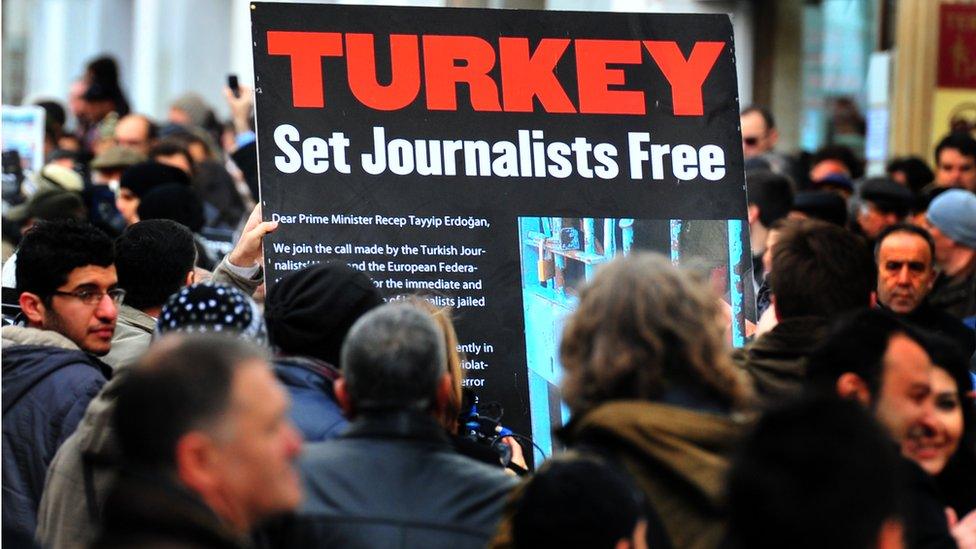
Turkey has a poor record on media freedom
Hundreds of private TV and radio stations compete with state broadcaster TRT. However, broadcasting and the press are dominated by pro-government outlets.
Critical news outlets face the risk of being raided or fined. Most arrested journalists are charged with membership in, or propaganda for, groups deemed to be terrorist organisations.
With mainstream media largely off-limits, independent and opposition voices often rely on social media to share news and opinion.
However, the authorities often impose tough restrictions on social media platforms in order to control information, including by entirely blocking access.
Read full media profile
TIMELINE
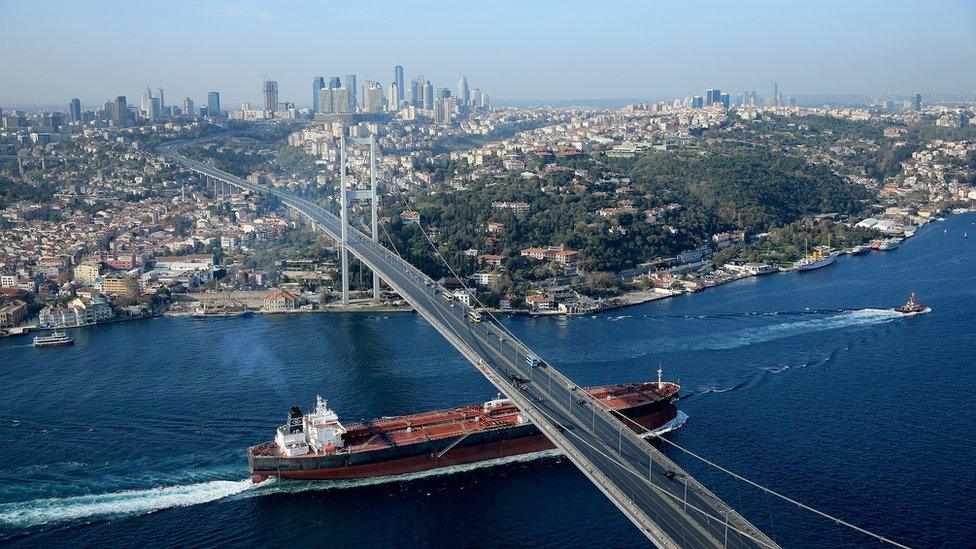
Istanbul's iconic Bosphorus Bridge links Asia and Europe
Some key dates in Turkey's history:
1453 - Sultan Mehmed II captures Constantinople, ending the Byzantine Empire and consolidating Ottoman Empire in Asia Minor and Balkans.
15th-16th Centuries - Ottoman Empire expands into Asia and Africa.
16th-17th Centuries - Ottoman Empire's power and prestige peaks, particularly during the reign of Suleiman the Magnificent (1520-1566), who personally instituted major legislative changes relating to society, education, taxation and criminal law.
During this period, Ottoman forces are often at odds with the Holy Roman Empire in their advance towards Central Europe through the Balkans and the southern part of the Polish-Lithuanian Commonwealth.
1538, 1571, 1684 and 1717 - Ottoman navy battles for control of the Mediterranean Sea against several Holy Leagues, composed primarily of Habsburg Spain, Genoa, Venice, Knights of Malta, Papal States, Tuscany and Savoy.
1683-99 - Great Turkish War between the Ottomans and the Holy League: triggered by the Ottoman siege of Vienna in 1683 - which is defeated by a relieving army led by John Hunyadi of the Polish-Lithuanian Commonwealth.
16th-18th Centuries - Ottomans often at war with Safavid Persia. Ottoman wars with Persia continue as the Zand, Afsharid, and Qajar dynasties succeed the Safavids in Iran, until the first half of the 19th Century.
16th-20th Centuries - Russo-Turkish wars: a series of 12 wars fought between the Russian Empire and the Ottoman Empire. Except for the war of 1710-11 and the Crimean War 1853-56, these end in Ottoman defeats.
1750s onwards - Ottoman Empire begins to decline.
1839 - Tanzimat reforms aim to modernise the Ottoman state in line with progress made in Western Europe.
1876 - These reforms lead to the Ottoman constitutional movement, but the reforms fail to stop the dissolution of the empire.
1908 - Young Turk Revolution forces Sultan Abdul Hamid II to restore the 1876 Ottoman Constitution and recall parliament, which ushers in multi-party politics.
1912-1913 - First Balkan War: the loss of Rumelia, Ottoman territories in Europe, sees the arrival of millions of Muslim refugees in Istanbul and is a major shock to the state.
1913 - Ottoman coup d'état: Committee of Union and Progress (CUP) members make a surprise raid on central Ottoman government buildings and seizes power in the wake of defeat in the war.
Ottoman forces recover Edirne and surrounding areas in East Thrace during the Second Balkan War of 1913.
1914-1918 - Turkey effectively becomes a military dictatorship during World War One, where the Ottoman Empire fights in alliance with Germany and Austria-Hungary.
1915-1917 - Between 300,000 and 1.5 million Armenians are massacred or deported by the Ottoman government from their homeland in Anatolia to present-day Syria. Armenia and many historians consider the killings an act of genocide. Turkey says killings occurred on both sides and denies that those suffered by Armenians amount to genocide. The topic remains a highly sensitive issue.
1918-22 - Partition of defeated Ottoman Empire leads to eventual triumph of Turkish National Movement in war of independence against foreign occupation and the rule of the Sultan.
1923 - Turkey becomes a republic with war hero Mustafa Kemal as its president. He later adopts the title "Ataturk", or leader of the Turks, and embarks on a modernisation project, including changes to civil laws and enshrining secularism in the constitution.
1939-45 - Turkey remains neutral for most of World War Two. It declares war on Germany and Japan in February 1945 but does not take part in fighting. Joins United Nations.
1950 - Turkey holds its first free elections, won by the opposition Democrat Party. Adnan Menderes becomes prime minister, taking steps to liberalise the economy and move the country in a pro-US direction early in the Cold War.
1952 - Turkey joins Nato.
1960 - Army coup against ruling Democratic Party.
1963 - Association agreement signed with European Economic Community (EEC), now the EU.
1974 - Turkish troops occupy northern Cyprus, partitioning the island.
1980 - Military coup follows political deadlock and civil unrest. Imposition of martial law.
1984 - Kurdistan Workers' Party (PKK) launches separatists guerrilla campaign which develops into a major civil war that simmers on for decades.
1987 - Turkey applies for full EEC membership.
2002 - Islamist-rooted Justice and Development Party (AKP) wins landslide election victory. Party promises to stick to secular principles of constitution.
2003 - AKP leader Recep Tayyip Erdogan wins seat in parliament. Within days Abdullah Gul resigns as prime minister and Erdogan takes over.
2011 - Syrian civil war breaks out, resulting in tension along the countries' border and a huge influx of refugees into Turkey.
2014 - Prime Minister Erdogan wins the first direct popular election for president.
2016 - Attempted coup fails. Authorities detain thousands of soldiers and judges on suspicion of involvement.
2017 - Referendum approves switch to presidential system.
2022 - UN agrees to request from Ankara to officially refer to country as Türkiye.
2023 - Erdogan wins another five-year term as president, while his ruling alliance wins a parliamentary majority.
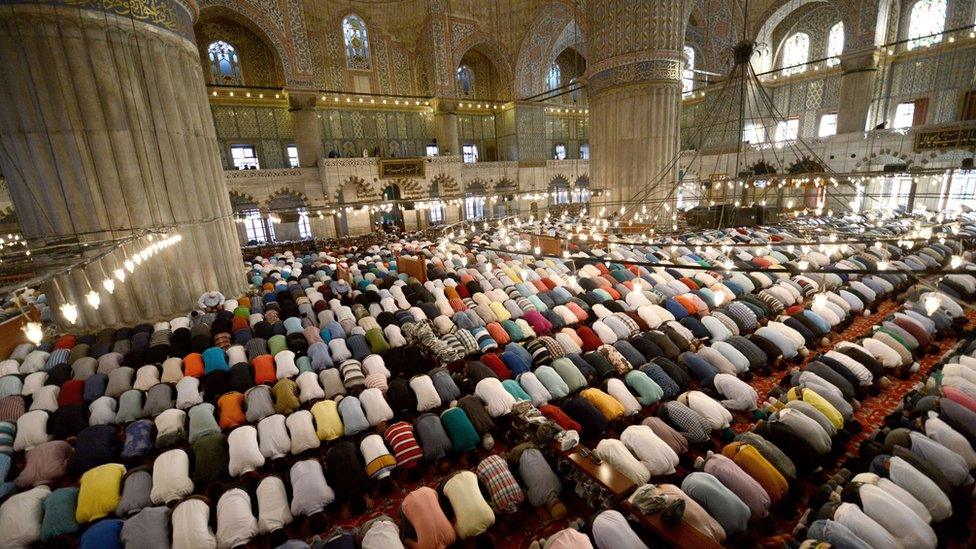
Worshippers pray inside the Blue Mosque in Istanbul
Related topics
- Published28 June 2023
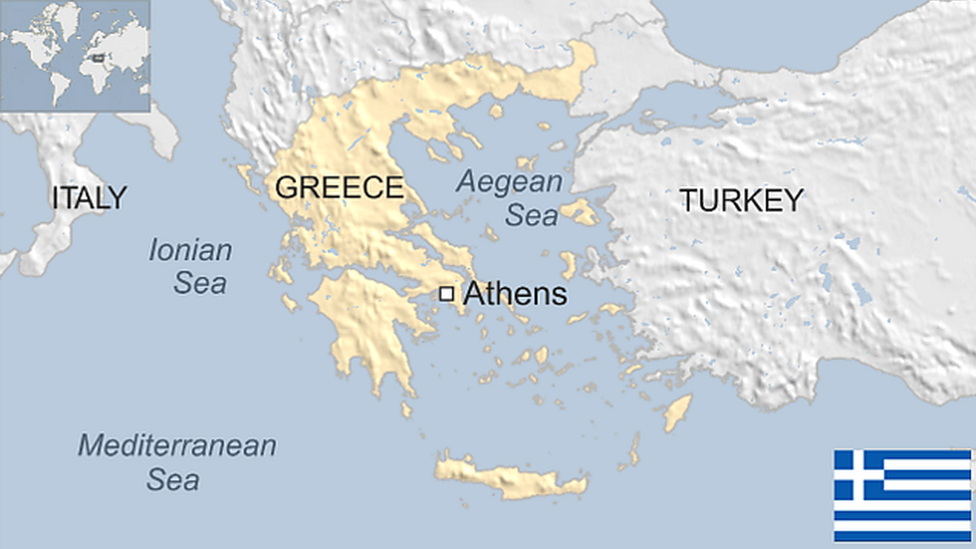
- Published20 January
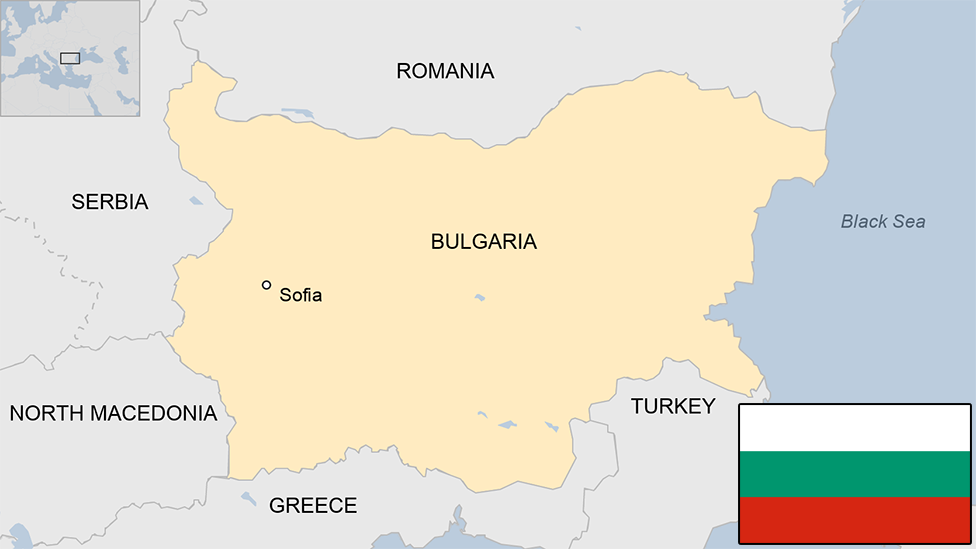
- Published25 March 2024

- Published31 December 2024
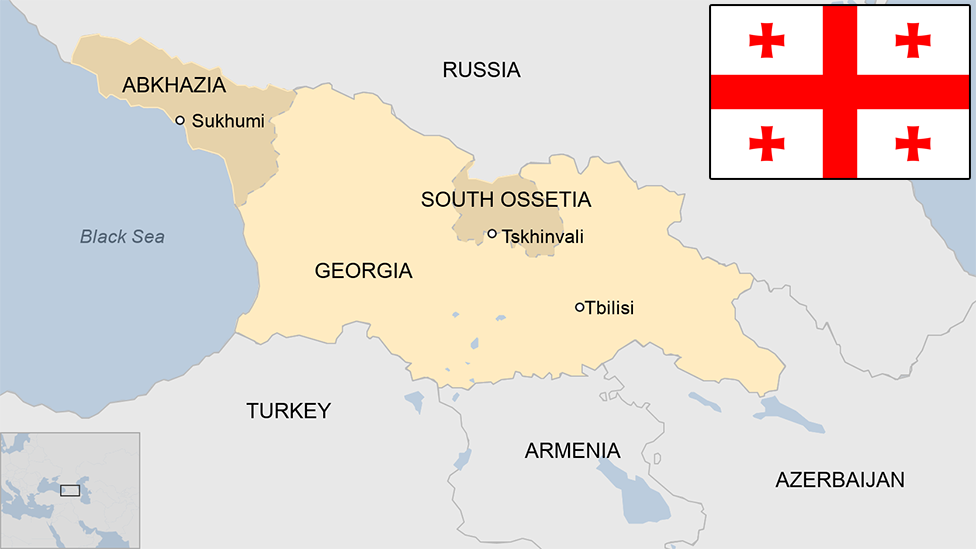
- Published30 January 2024
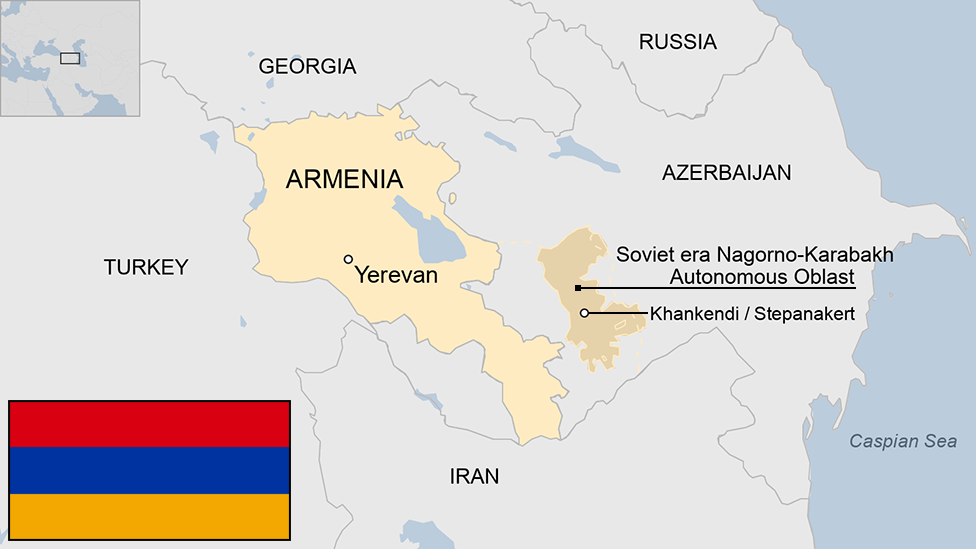
- Published14 October 2024

- Published13 September 2023
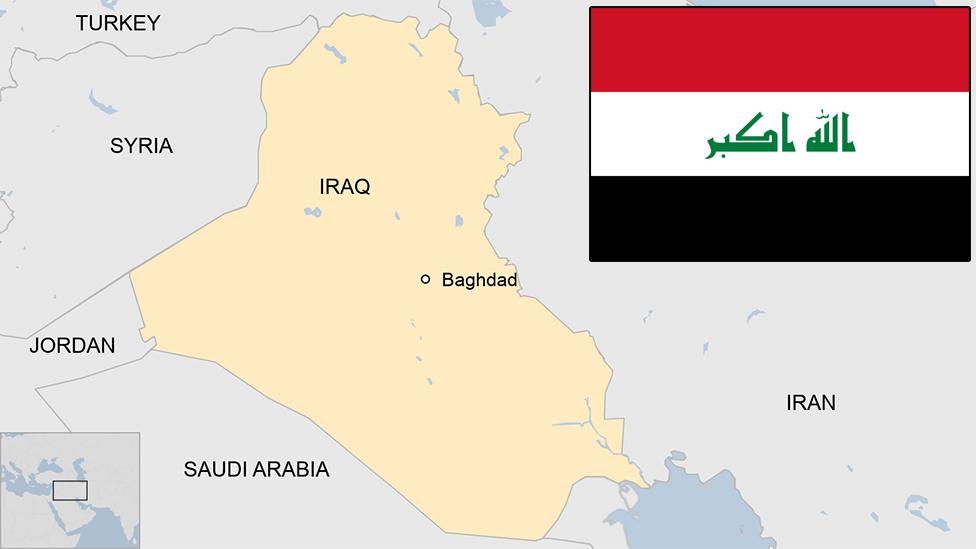
- Published7 January

- Published7 April 2023
